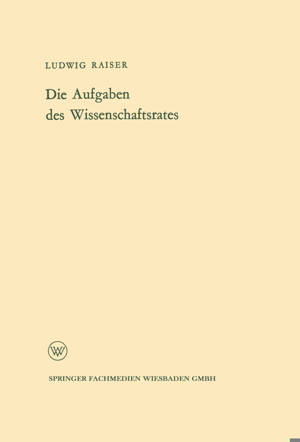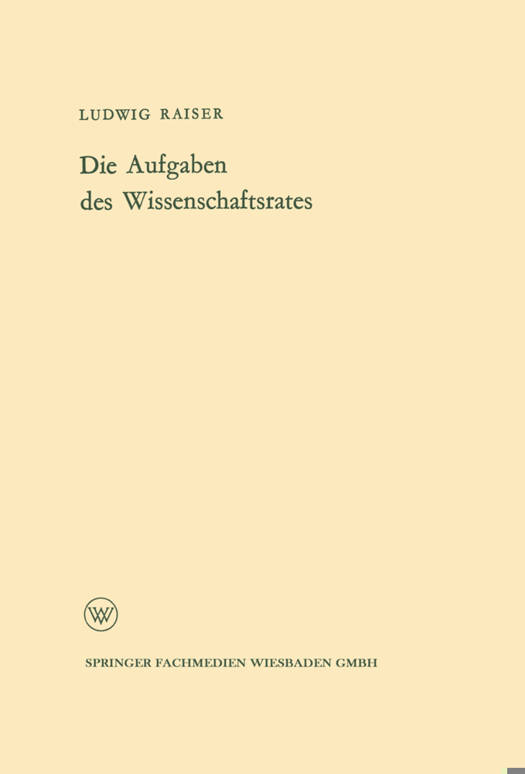
- Afhalen na 1 uur in een winkel met voorraad
- Gratis thuislevering in België vanaf € 30
- Ruim aanbod met 7 miljoen producten
- Afhalen na 1 uur in een winkel met voorraad
- Gratis thuislevering in België vanaf € 30
- Ruim aanbod met 7 miljoen producten
Zoeken
Omschrijving
In view of the fact that for a modern nation the efficiency of its science has become a quest ion of existence, that German science has lost its former world rank, and that the severely divided forces working to overcome this loss need to be co-ordinated, the Bund and the Laender, through adminis- trative agreements, have created the Science Council, which commenced its work early in 1958. It consists of a committee of 39 members, divided into two chambers (the Administrative Commission and the Scientific Commis- sion) meeting also as an assembly several times annually. It has the function of a planning authority for the development of German science (including social sciences and humanities), responsible for the critical study and re- shaping of its organisation principles, the study of measures for the increase of its efficiency, and the study of proposals to national bodies for the most productive utilisation of financial and organisational aid. In its first three years of work the Science Council dealt initially with the improvement of existing universities and technical colleges and with questions of reconstruction, the results of which were published at the end of 1960 in the first volume of recommendations. This was followed in autumn 1962 with "Suggestions for the Creation of new Universities", com- prising reform proposals to be adopted in the establishment of universities.
Specificaties
Betrokkenen
- Auteur(s):
- Uitgeverij:
Inhoud
- Aantal bladzijden:
- 71
- Taal:
- Duits
- Reeks:
- Reeksnummer:
- nr. 111
Eigenschappen
- Productcode (EAN):
- 9783322980328
- Verschijningsdatum:
- 1/01/1963
- Uitvoering:
- Paperback
- Formaat:
- Trade paperback (VS)
- Afmetingen:
- 170 mm x 244 mm
- Gewicht:
- 131 g

Alleen bij Standaard Boekhandel
+ 108 punten op je klantenkaart van Standaard Boekhandel
Beoordelingen
We publiceren alleen reviews die voldoen aan de voorwaarden voor reviews. Bekijk onze voorwaarden voor reviews.











